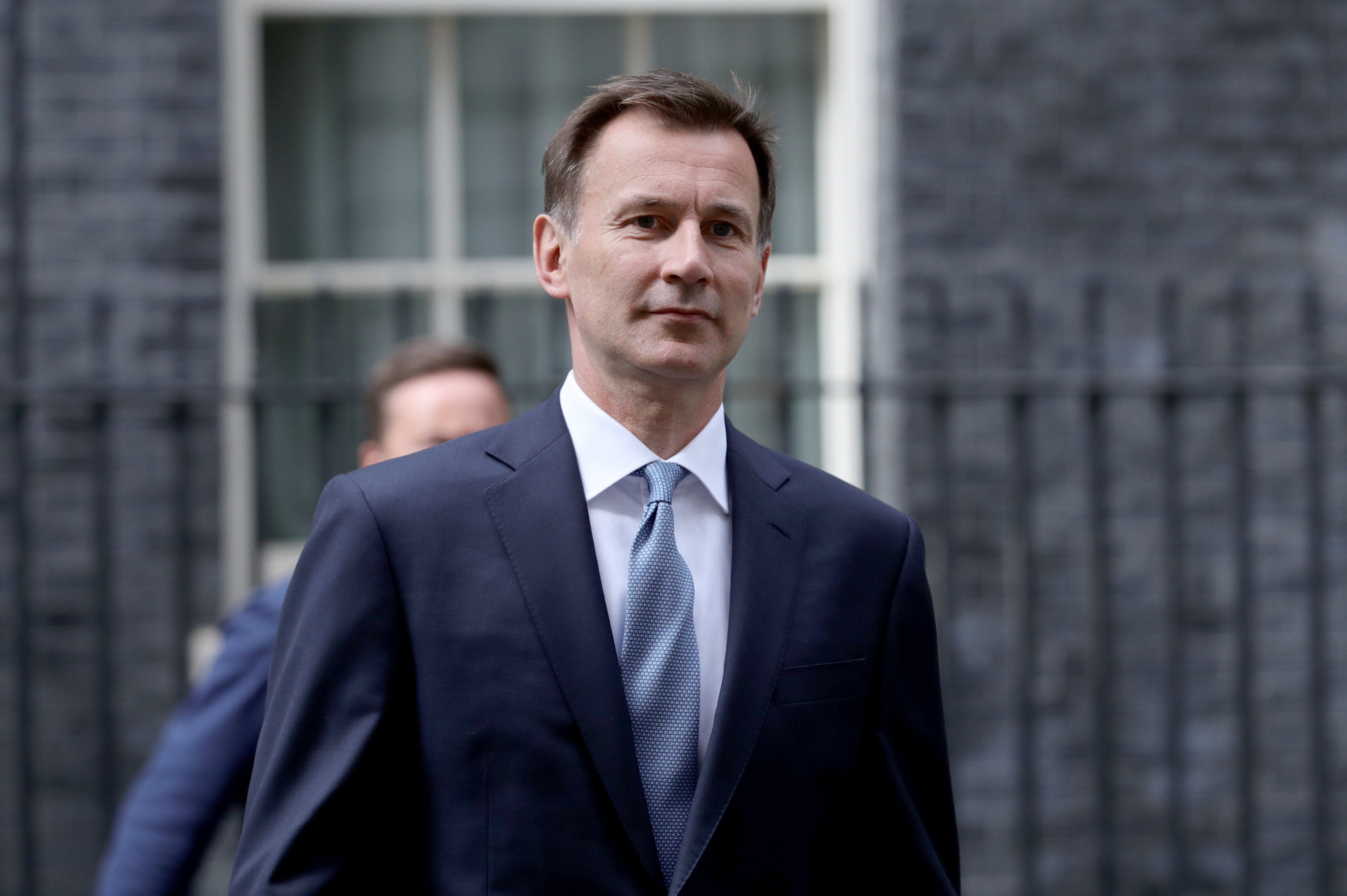Emmanuel Macron lashes UK for not doing enough for Ukraine’s refugees
French president criticises Boris Johnson’s visa policy
Your support helps us to tell the story
From reproductive rights to climate change to Big Tech, The Independent is on the ground when the story is developing. Whether it's investigating the financials of Elon Musk's pro-Trump PAC or producing our latest documentary, 'The A Word', which shines a light on the American women fighting for reproductive rights, we know how important it is to parse out the facts from the messaging.
At such a critical moment in US history, we need reporters on the ground. Your donation allows us to keep sending journalists to speak to both sides of the story.
The Independent is trusted by Americans across the entire political spectrum. And unlike many other quality news outlets, we choose not to lock Americans out of our reporting and analysis with paywalls. We believe quality journalism should be available to everyone, paid for by those who can afford it.
Your support makes all the difference.Boris Johnson’s government has been condemned by French president Emmanuel Macron for failing to live up to its “grand statements” on helping refugees from Ukraine.
Speaking at the end of an EU summit in Versailles, Mr Macron criticised Britain’s visa policy, which had required applicants to make them in person in Brussels or Paris.
Mr Macron suggested the approach had further exacerbated the situation for those fleeing the Russian invasion of their country.
“Despite all the grand statements… the British government continued to apply current rules that meant they did not welcome Ukrainian refugees who wanted to reach British soil saying they have to travel hundreds of kilometres in order to apply for a visa,” said the president.
He added: “I would hope that the Ukrainian men and women who have lived through horror and crossed Europe to reach their families on UK territory will be better treated.”
Home secretary Priti Patel announced that from Tuesday people will be able to apply online for a visa and will no longer have to go to a processing centre to give their biometrics.
In response to Mr Macron’s reported remarks, the Home Office pointed to Ms Patel’s comments, which stated: “We are now making the process quicker and simpler by removing the need to physically visit visa application centres for many of those who are making the perilous journey across Europe.”
Meanwhile, the government is intending to further ramp up pressure on the Kremlin with plans to ban exports of luxury goods to Russia in the latest move to isolate Vladimir Putin.
Details of the plans and what it means for UK businesses will be set out in the coming days, Downing Street said.
It came as Mr Johnson joined with other G7 leaders on Friday to commit to further increase the pressure on the Russian president’s regime.
The group agreed to take steps to deny Russia “most favoured nation” status on key products, which No 10 said would significantly reduce the ability of Russian businesses to export.
Sharing the news on Friday evening, foreign secretary Liz Truss said the UK stood “united with our G7 partners”, and would “continue strengthening our response” to put a halt to Russia’s aggression against its neighbour.
But Labour said the ban on luxury goods “should not have taken this long”. Nick Thomas-Symonds, Labour’s shadow international trade secretary, said: “We cannot allow Putin, and his cronies in Moscow, to live a Mayfair lifestyle while they kill innocent people in their illegal invasion of Ukraine.”
The announcement follows Britain’s sanctioning of nearly 400 Russian parliamentarians, with ministers seeking to “tighten the screw” on Moscow over the invasion of Ukraine.
Earlier on Friday, Ms Truss said 386 members of the Duma, the lower house of the Russian parliament, would be banned from travelling to the UK and any assets they had in the country would be frozen.
The government originally announced its intention to sanction the parliamentarians last month over their support for the Ukrainian breakaway regions of Luhansk and Donetsk.

Meanwhile, former Tory foreign secretary Jeremy Hunt argued the Russian invasion of Ukraine was “the biggest failure of Western foreign and security policy in our lifetimes”.
Writing in the Daily Telegraph, he said: “It happened because we forgot the most fundamental lesson of the Cold War: the power of deterrence. Instead of peace through strength we caused war through weakness.”
Mr Hunt also suggested the UK should increase spending on “defence, aid and soft power” to at least 4% of GDP over the next decade.
The UK’s permanent representative to the United Nations accused Russia of bringing about “wild, completely baseless and irresponsible conspiracy theories”.
It came as the UN security council met at Russia’s request to discuss claims levelled by Moscow about biological activities in Ukraine.
Mr Johnson has previously expressed fears Russia is spreading a “fake story” that the US or the Ukrainians have chemical weapons in Ukraine as a pretext for an atrocity.
The Ukraine crisis is expected to be a topic for discussion when Mr Johnson meets Irish premier Micheal Martin for talks on Saturday.
The sanctioning of nearly 400 Russian parliamentarians in the Duma on Friday followed the announcement on Thursday that seven more oligarchs linked to Vladimir Putin, including Chelsea football club owner Roman Abramovich, were being subjected to similar measures.
The Duma move was first announced on February 22 and ministers are yet to target all the members of the Federation Council, the Russian parliament’s upper house.
The UK has now sanctioned more than 500 high-value individuals and entities since the invasion of Ukraine began, while Russian aircraft – including oligarchs’ private jets – are banned from the UK.


